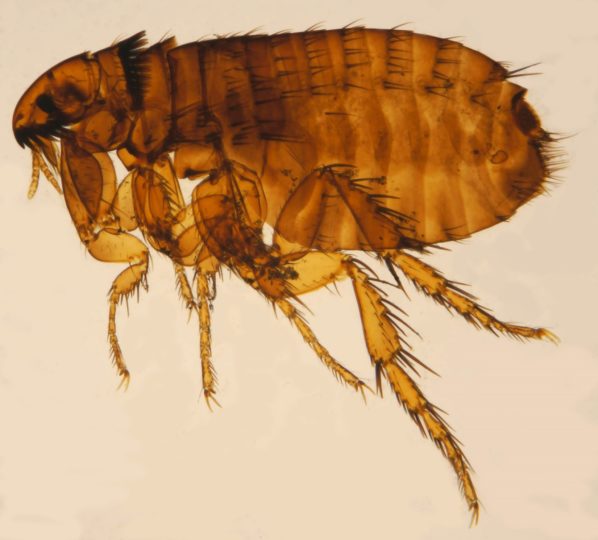
The cat flea ctenocephalides felis.
SAN DIEGO–County health officials are urging pet owners who let their animals outside to remember to protect their pets — and themselves — from fleas after a county resident has recovered from a relatively rare but potentially deadly form of typhus.
County public health officials said a North Park woman was hospitalized in May but has fully recovered after contracting murine typhus, a bacterial disease.
It is most commonly spread by fleas that feed on infected rats, opossums, cats, raccoons and rodents. Those fleas can hitchhike into people’s homes on pet cats and dogs if pets are let outside without flea protection. People get sick with murine typhus when infected flea feces are rubbed into cuts or scrapes in the skin. The disease is not spread person-to-person.
“The woman who became ill had an indoor/outdoor cat and remembered being bitten by fleas before getting sick,” said Dr. Sayone Thihalolipavan, the County of San Diego’s Deputy Public Health Officer. “Keeping fleas off your pets and out of your homes is the best prevention for murine typhus.”
County officials said the public can reduce the risk of getting murine typhus by using veterinarian-approved flea control products for cats and dogs. This is especially important for animals that go outside, which are more likely to come in contact with fleas and then bring them inside.
The California Department of Public Health (CDPH) reports that there are about 200 cases of murine typhus reported each year in the United States. Most cases occur in Texas, California and Hawaii. San Diego County public health officials said there is typically around one locally acquired case reported here annually. However, they said, the disease is often not recognized because most people who contract it recover without any treatment.
Even though most people never need treatment, some murine typhus cases may be severe. The Centers for Disease Control and Prevention (CDC) reports that there is no vaccine to prevent murine typhus, but that it can be treated successfully by antibiotics. When untreated in severe cases, it may be fatal or lead to damage to one or more organs including the liver, kidneys, heart, lungs, and brain.
County public health officials said symptoms of murine typhus typically begin within two weeks of coming into contact with infected fleas.
Symptoms can include fever and chills, body aches and muscle pain, loss of appetite, nausea, vomiting, stomach pain, cough, and rash, which typically occurs around the fifth day of illness.
In addition to using flea-control products on pets, County officials said the public can also protect themselves and their pets by keeping rodents and animals away from their homes, workplaces and recreational areas. People should remove brush, rock piles, junk, cluttered firewood and food supplies — especially pet food.
People should use Environmental Protection Agency (EPA)-registered insect repellent labeled for use against fleas if they think they could be exposed to fleas during activities such as camping, hiking, or working outdoors. Permethrin can be used to treat clothing and outdoor gear, but it should not be used on skin.
More information about murine typhus can be found at the Centers for Disease Control and Prevention (CDC) website.




